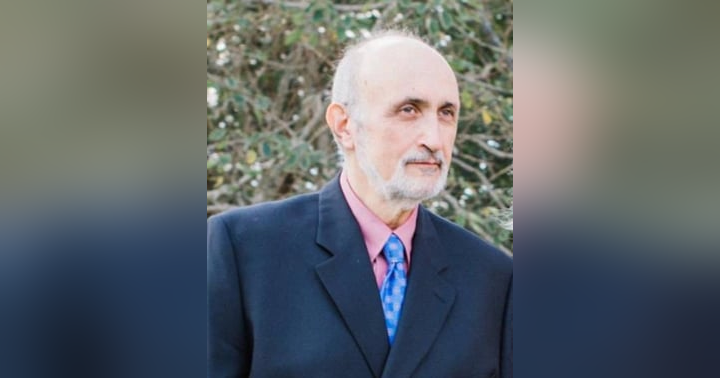
Addiction is a formidable foe, not only for the individual struggling with substance abuse but also for their family. The impact of addiction ripples through the entire family system, creating chaos, stress, and emotional turmoil. In this blog post, we'll explore practical strategies for families navigating the complexities of addiction, drawing wisdom and insights from Jennifer Chase, a recovery advocate and coach who has experienced addiction from multiple perspectives. We'll delve into identifying enabling behaviors, setting firm yet loving boundaries, and allowing natural consequences to unfold, all to foster a more peaceful and supportive environment. This post is inspired by my recent conversation with Jennifer Chase. I encourage you to listen to the full discussion in the episode How Jennifer Chase Heals Families Stuck in Addiction, where we delve deeper into these topics and Jennifer shares her personal journey.
The Ripple Effect of Addiction on Families
Addiction doesn't exist in a vacuum. It's a family affair, whether we like it or not. The behaviors of an addicted individual affect everyone around them, creating a ripple effect of emotional, financial, and social consequences. Parents may experience guilt and shame, siblings may feel neglected or resentful, and spouses may struggle with codependency. The family dynamic can become distorted, with communication breaking down and trust eroding. The constant worry, the unpredictable behavior, and the emotional rollercoaster all take a toll on the mental and physical health of family members.
Meet Jennifer Chase: From Trauma to Triumph
Jennifer Chase is a beacon of hope for families entangled in the web of addiction. Her story is one of resilience, recovery, and ultimately, triumph. As the daughter of an alcoholic, a woman in long-term recovery herself, and the mother of a recovering addict, Jennifer has witnessed the devastation and the possibility of healing from all sides. Her personal experiences, coupled with her professional expertise as an addiction and family recovery coach, provide her with a unique understanding of the challenges and opportunities that families face. Jennifer understands the nuances of family dynamics that are often overlooked in traditional treatment approaches. She helps families navigate the complexities of addiction with compassion, wisdom, and practical strategies.
Understanding Addiction: More Than Just Substance Abuse
It's crucial to understand that addiction is not simply a matter of willpower or moral failing. It's a complex disease that affects the brain and alters behavior. Addiction is often rooted in underlying issues such as trauma, mental health disorders, or chronic pain. Understanding the underlying causes of addiction can help families approach the situation with more empathy and less judgment. According to Jennifer, "Substance isn't the problem." The real issues often lie in shame, coping mechanisms, and difficult choices the addicted individual is making. Reframing addiction as a disease, rather than a character flaw, can open the door to more effective communication and support.
Identifying Enabling Behaviors in Family Dynamics
Enabling behaviors are actions that protect the addicted individual from the consequences of their actions, often unintentionally perpetuating the addiction. These behaviors can range from making excuses for the addict, providing financial support, or cleaning up their messes – both literally and figuratively. Enabling behaviors are often driven by love, fear, or guilt, but they ultimately hinder the recovery process. Identifying enabling behaviors within the family dynamic is the first step toward breaking the cycle of addiction. Some common examples of enabling include:
- Covering up for the addicted individual at work or school
- Providing money or shelter without requiring accountability
- Ignoring or minimizing the severity of the addiction
- Making excuses for their behavior to friends and family
- Blaming others for the addiction
Recognizing these behaviors and understanding their negative impact is crucial for creating a healthier family system.
Setting Firm Yet Loving Boundaries: A Guide for Families
Setting boundaries is essential for protecting the well-being of family members and encouraging the addicted individual to take responsibility for their actions. Boundaries are clear limits that define acceptable and unacceptable behavior. They are not meant to be punitive but rather to create a safe and healthy environment for everyone involved. Boundaries should be firm, consistent, and communicated with love and respect. Some examples of healthy boundaries include:
- Refusing to provide money for drugs or alcohol
- Insisting that the addicted individual seek treatment
- Creating a drug-free and alcohol-free home environment
- Limiting contact with the addicted individual when they are under the influence
- Prioritizing your own physical and emotional health
Setting boundaries can be challenging, especially when it involves someone you love. However, it's important to remember that setting boundaries is an act of love, both for yourself and for the addicted individual. It communicates that you value yourself and that you believe in their ability to recover.
Allowing Natural Consequences: Letting Go with Love
Allowing natural consequences to unfold means stepping back and allowing the addicted individual to experience the results of their actions. This can be difficult for families who are used to rescuing or protecting the addicted individual from harm. However, shielding them from the consequences of their behavior can prevent them from recognizing the severity of their addiction and motivating them to seek help. Natural consequences can range from losing a job or a relationship to facing legal or financial troubles. It's important to allow these consequences to unfold without interference, while still offering support and encouragement. This can be a painful process, but it's often a necessary step in the recovery journey.
The Importance of Self-Care for Family Members
Navigating addiction within a family can be emotionally draining and physically exhausting. It's crucial for family members to prioritize their own self-care to maintain their well-being and prevent burnout. Self-care involves taking steps to nurture your physical, emotional, and spiritual health. This can include activities such as:
- Getting enough sleep
- Eating a healthy diet
- Exercising regularly
- Practicing relaxation techniques such as meditation or yoga
- Spending time with loved ones
- Engaging in hobbies and activities that bring you joy
- Seeking therapy or counseling
- Attending support groups
Remember, you can't pour from an empty cup. Taking care of yourself allows you to be a more effective and supportive caregiver. As Jennifer mentioned in the episode, meditation, exercise, journaling, therapy, and service to others can be invaluable tools for maintaining well-being during challenging times.
Jennifer's Services: Coaching, Calls, and Retreats
Jennifer Chase offers a range of services to support families navigating addiction. Her services include individual coaching, twice-weekly coaching calls, and retreats. These services provide families with the tools, resources, and support they need to navigate the complexities of addiction and create a more peaceful and supportive environment. Jennifer's coaching approach is based on her personal experiences and professional expertise, providing families with practical strategies and compassionate guidance. Her coaching calls offer a supportive community where families can connect with others who understand their challenges. Her retreats provide a more immersive experience, allowing families to deepen their understanding of addiction and develop coping mechanisms in a safe and nurturing environment. You can learn more about Jennifer's services on her website: riseaddictionlc.com.
Resources for Families Navigating Addiction
There are numerous resources available for families navigating addiction. These resources can provide education, support, and guidance. Some helpful resources include:
- Al-Anon and Nar-Anon: Support groups for family members of alcoholics and addicts
- The National Institute on Drug Abuse (NIDA): Provides information on drug abuse and addiction
- The Substance Abuse and Mental Health Services Administration (SAMHSA): Offers resources on substance abuse and mental health treatment
- The Mayo Clinic: A trusted source for medical information and treatment options
Don't hesitate to reach out for help. There are people who care and resources available to support you on your journey.
Finding Peace and Building a Supportive Environment: A Path Forward
Navigating addiction within a family is a challenging journey, but it's possible to find peace and build a supportive environment. By understanding the complexities of addiction, identifying enabling behaviors, setting firm yet loving boundaries, allowing natural consequences to unfold, and prioritizing self-care, families can create a healthier and more harmonious dynamic. Remember, recovery is a process, not a destination. There will be setbacks and challenges along the way. But with patience, compassion, and unwavering support, families can navigate addiction and build a brighter future together. As Jennifer Chase emphasizes, connection, forgiveness, and firm, loving boundaries are key to rebuilding families affected by addiction.
In conclusion, navigating addiction within a family requires a multifaceted approach that addresses the needs of both the individual struggling with addiction and their loved ones. By understanding the ripple effect of addiction, identifying enabling behaviors, setting boundaries, and prioritizing self-care, families can create a more peaceful and supportive environment. Jennifer Chase's insights, drawn from her personal and professional experiences, offer valuable guidance for families seeking to navigate the complexities of addiction. Remember to check out the full conversation with Jennifer Chase in the episode How Jennifer Chase Heals Families Stuck in Addiction for a deeper dive into these topics. You can hear Jennifer share her journey from trauma to triumph and learn practical ways families can stop enabling, set clear limits, and find peace. I hope this blog post has provided you with valuable information and inspiration. If you or someone you know is struggling with addiction, please reach out for help. There is hope for recovery.










